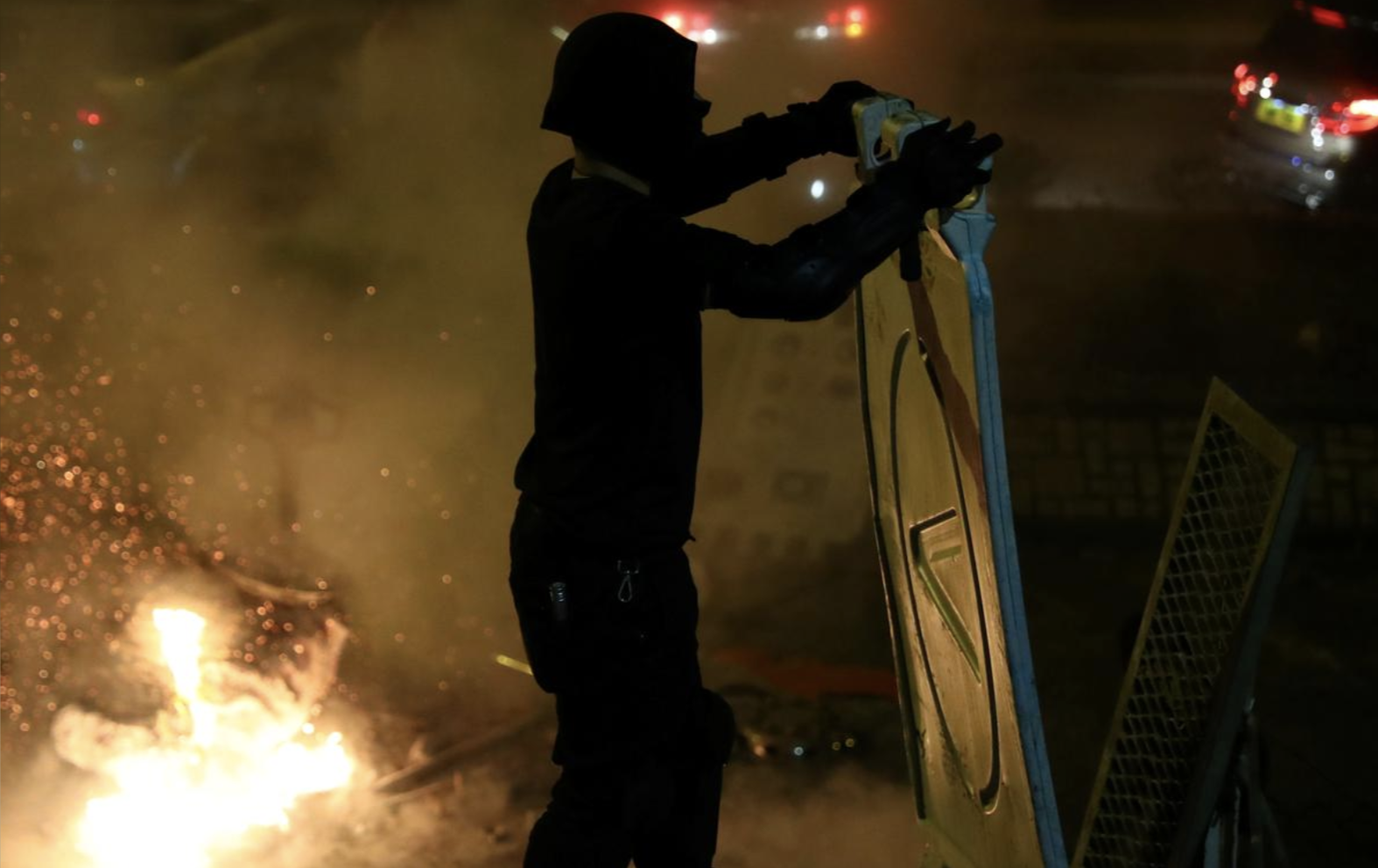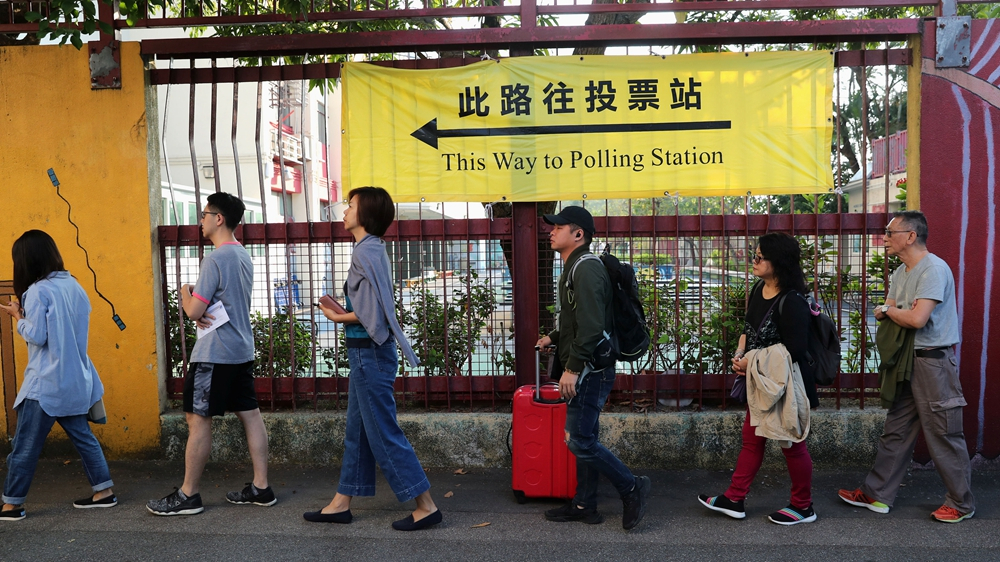
"One Country, Two Systems" is alive and well in Hong Kong. /VCG Photo
"One Country, Two Systems" is alive and well in Hong Kong. /VCG Photo
Editor's Note: Huang Jiyuan is an opinion editor with CGTN Digital. The article reflects the author's opinions, and not necessarily the views of CGTN.
The integrity of a system is reflected in its ability to endure challenges and still function in accordance with the law. The District Council Ordinary Elections in Hong Kong just proved that its system is robust, and "One Country, Two Systems" is still alive and well.
Six months of protests and chaos in the city have led people to doubt whether this special governance structure would survive. The constant and undying violence instilled in some residents' minds fueled the notion that perhaps the system might be unable to deal with the grievances of the people and restore order to the city. And foreign powers like the U.S. have used residents' questions as a pretext to interfere in the city by claiming that they would stand up for and protect the system's integrity.
The escalating violence in the weeks preceding the election led many to speculate about its fate. People thought that it could be suspended by potential conflicts on election day. Some suggested that it might get postponed due to the targeted political attacks on candidates and their offices.

A protester puts up a barricade in Hong Kong. Violence and chaos have paralyzed the city for six months. This election is hoped to be the solution to the situation. /Photo via Reuters
A protester puts up a barricade in Hong Kong. Violence and chaos have paralyzed the city for six months. This election is hoped to be the solution to the situation. /Photo via Reuters
Only, none of the speculations turned out to be true. Hong Kong doesn't need foreigners' protection. And Hong Kong residents should rest at ease knowing that their voice and their rights are respected and protected by the system that they've lived under for more than two decades.
The Hong Kong authorities made it clear that the election would happen as scheduled. Chief Executive Carrie Lam promised that the HKSAR government would do its "utmost to organize a fair, open and honest election." With a total population of more than 7 million, an unprecedented 2.94 million Hong Kong residents voted in Sunday's election. The turnout rate was 71.2 percent. The authorities dispatched riot police to guard polling stations, the first time in the history of District Council Ordinary Elections, and kept a minimum presence at the scene as promised.
It is quite remarkable to think that, under such a polarized and violent situation, the most complaints received by the Electoral Affairs Commission were about voting arrangements, i.e. long queuing or the change of voting stations. And the authorities have made its utmost effort to accommodate the high turnout.
The importance of the election lies in the fact that it was not only held, but completed smoothly. Despite confrontations in the streets and violent protesters deliberately targeting government facilities, on Sunday, the Hong Kong authorities and Hong Kong residents together ensured the right to vote was exercised and the democratic system in Hong Kong functioned as designed. Months of unrest and conflict between the society and the government spurred voters to the voting booths, and the policy differences are translated through votes into the candidates elected. The winners will use their positions to express their constituents' preferences, form new policies to benefit the general public and move the city forward.

The election on Sunday saw an unprecedented voter turnout in Hong Kong. /VCG Photo
The election on Sunday saw an unprecedented voter turnout in Hong Kong. /VCG Photo
What more could you ask from a system that worked exactly as it was created, even when the conflict is intense and differences are wide? The electoral system in Hong Kong is designed to be able to channel the public's desire into new governance through elections, and it did just that. It wasn't eroded or diminished as many in the West speculated, and it wasn't broken under the weight of social tensions. The election proved that the system's integrity is intact, and that Hong Kong can be governed by a different system than the Chinese mainland. "One Country, Two Systems" is working as it is supposed to.
Although the opposition parties now seem to have secured a majority of seats, it is time for all Hong Kong residents and the authorities to work together to make sure that necessary changes are made and new policies are enacted after months of chaos and violence. Restoring Hong Kong to peace and prosperity requires cooperation from people of all walks of life and all sectors of society.
Only through peace and cooperation will the division be reconciled in the city, and the "One Country, Two Systems" continues to live and function.
(If you want to contribute and have specific expertise, please contact us at opinions@cgtn.com.)